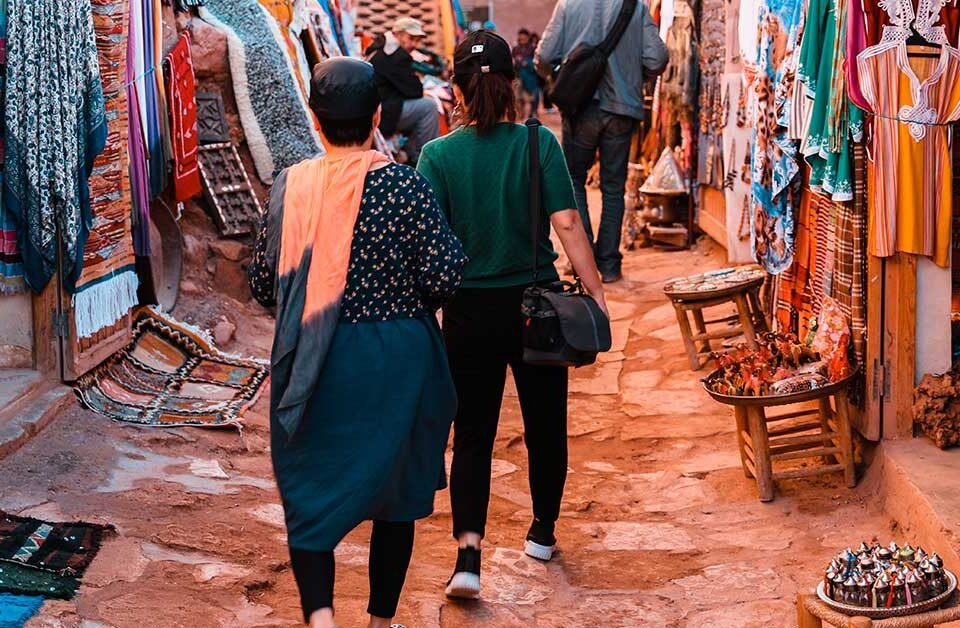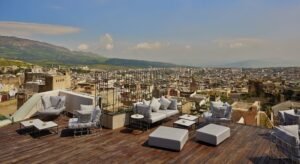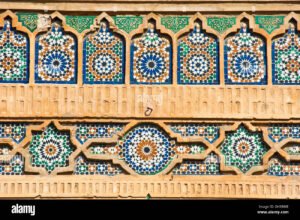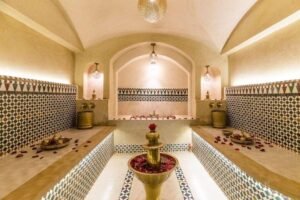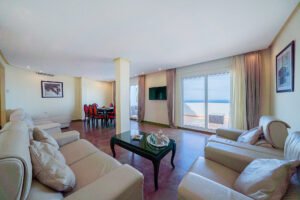Morocco Rules for Tourists: Essential Travel Regulations and Tips for a Hassle-Free Trip
Morocco is a land of striking contrasts, where ancient traditions blend with modern luxuries. From the bustling souks of Marrakech to the tranquil beaches of Essaouira and the golden dunes of the Sahara, this North African gem attracts millions of visitors each year. However, to fully enjoy its vibrant culture, breathtaking landscapes, and warm hospitality, understanding Morocco’s rules for tourists is essential. Traveling to a new country always comes with questions about local laws, customs, and practical considerations. What are the visa requirements? How should you dress? What are the common scams to watch for? This guide provides a detailed overview of everything you need to know before visiting Morocco, ensuring a seamless, worry-free experience. Whether you are visiting for a luxurious retreat, a business trip, or an adventurous exploration, these essential travel regulations and cultural insights will help you navigate Morocco with confidence. We’re here to help! Message us on WhatsApp, and a team member will assist you personally.1. Morocco Rules for Tourists: Visa and Entry Requirements
Who Needs a Visa?
Most travelers can enter Morocco without a visa for short stays. Citizens from the United States, United Kingdom, European Union, Canada, Australia, and several other countries can visit for up to 90 days visa-free. However, your passport must be valid for at least six months beyond your planned departure date.Extending Your Stay or Business Travel
For those wishing to stay beyond 90 days, an extension must be requested through local immigration authorities. Business travelers attending conferences or meetings should verify whether a business visa or special authorization is needed.Arrival and Customs Regulations
Upon arrival, visitors may be asked to present:- A valid passport
- A return ticket or proof of onward travel
- Proof of accommodation (hotel booking or invitation from a resident)
2. Morocco Rules for Tourists: Respecting Local Laws and Cultural Etiquette
Morocco is an Islamic country with a unique balance of traditional values and modern influences. While tourists are welcomed with hospitality, respecting cultural norms is essential.Dress Code Guidelines
While there is no strict dress code, modest clothing is recommended, especially outside major cities. Women may feel more comfortable wearing loose-fitting clothes that cover shoulders and knees, particularly when visiting rural areas or religious sites.Public Behavior and Social Norms
- Public displays of affection (kissing or hugging) are discouraged, particularly in conservative areas.
- Alcohol is legal but should only be consumed in licensed venues such as hotels, restaurants, and bars. Drinking in public spaces is prohibited.
- Avoid discussing sensitive topics such as politics, the monarchy, or religion, as these subjects can be controversial.
Photography Rules
Photography is generally welcomed in Morocco’s stunning landscapes and historic sites. However, taking pictures of locals—particularly women and older individuals—should always be done with permission. Additionally, photographing military or government buildings is strictly forbidden.3. Morocco Rules for Tourists: Currency, Payments, and Tipping Culture
Moroccan Currency and Exchange Tips
The local currency is the Moroccan Dirham (MAD), which is a closed currency, meaning it cannot be taken out of the country in large amounts. The best way to obtain dirhams is through ATMs or currency exchange offices upon arrival.- ATMs are widely available in major cities like Marrakech, Casablanca, and Rabat, but less common in remote areas.
- Exchange rates at airports tend to be higher, so withdrawing from an ATM is often a better option.
- Hotels and high-end restaurants accept credit cards, but many smaller businesses operate on a cash-only basis.
Tipping Expectations in Morocco
Tipping is a common practice, though not mandatory.- Restaurants: 10%–15% of the bill if service is not included.
- Taxi drivers: Rounding up the fare or adding 5-10 MAD for good service.
- Hotel staff and guides: 20–50 MAD depending on the service provided.
4. Staying Safe and Avoiding Tourist Scams
Is Morocco Safe for Tourists?
Morocco is one of the safest destinations in North Africa, with low crime rates in most areas. However, as with any popular tourist destination, petty theft and scams can occur.Common Tourist Scams to Watch For
- Fake guides: Some individuals may approach tourists in busy areas offering unsolicited tours. Only hire registered guides through hotels or official tourism offices.
- Taxi overcharges: Always request that the meter be used in petit taxis, or agree on a price before entering a grand taxi.
- Henna street artists: Some women in marketplaces may offer free henna designs, only to demand payment afterward.
5. Transportation in Morocco: How to Get Around Efficiently
Taxis and Ride-Hailing Services
- Petit taxis operate within city limits and use meters.
- Grand taxis are shared taxis for intercity routes but require negotiation on pricing.
- Ride-hailing apps like Careem and InDrive operate in some cities, offering safer alternatives to street taxis.
Train and Bus Travel
Morocco’s railway system is one of the best in Africa, with comfortable first-class options on major routes like Casablanca to Marrakech. For budget travelers, buses operated by CTM and Supratours offer affordable intercity travel.Domestic Flights for Long-Distance Travel
For travelers heading to destinations like the Sahara Desert or northern regions, domestic flights from Royal Air Maroc provide a faster alternative to long road trips.6. Luxury Travel and Business Etiquette: Morocco Rules for Tourists
For those traveling on business or seeking luxury experiences, Morocco offers world-class hotels, fine dining, and exclusive excursions.- Luxury accommodations include riads such as Royal Mansour in Marrakech or the Four Seasons in Casablanca.
- Exclusive experiences include private Sahara desert tours, helicopter rides over the Atlas Mountains, and guided cultural immersions.
- Business etiquette: Formal attire is recommended for meetings, and it is customary to exchange business cards. French is widely spoken in business circles.
7. Health and Hygiene: Staying Healthy While Traveling
Food and Water Safety
- Drink only bottled or filtered water to avoid stomach issues.
- Street food is safe if freshly prepared, but avoid raw or uncooked dishes.
Medical Facilities and Insurance
Pharmacies are well-stocked in urban areas, but for serious medical issues, private hospitals in Casablanca and Rabat offer higher-quality care. Travel insurance covering medical expenses is highly recommended.Final Travel Tips: Morocco Rules for Tourists for a Hassle-Free Visit
- Learn a few Arabic or French phrases—locals appreciate the effort.
- Pack appropriate clothing for varying climates—coastal areas are mild, but desert regions have extreme temperatures.
- Embrace local customs and be open to Morocco’s rich traditions for a more immersive experience.



